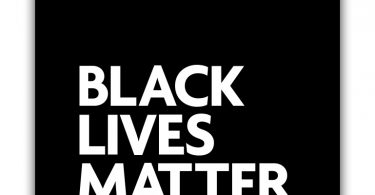By registered counsellor and psychotherapist Sharon Hinsull.
With at least one in ten men in the UK being found to struggle with their mental health following the birth of a child, postnatal depression (PND) in fathers often goes undetected, leaving many new dads to suffer in silence, frequently impacting the well-being of themselves and the rest of their family.
This year, International Father’s Mental Health Day set out to raise awareness of some of the difficulties new fathers can face in the early days of parenthood. Quite apart from having to deal with some of the more expected practical day-to-day demands of parenting, some dads may find themselves confronted by unforeseen circumstances that further impact the mental and emotional turmoil of early fatherhood. For example, there can often be significant ongoing challenges for men who have undergone the ordeal of witnessing a traumatic birth.
Feeling the pressure
According to the mental health charity Mind, various factors may lead to fathers experiencing mental health issues before or after the birth of a child. This likelihood increases when someone doesn’t have a good support network – or is struggling with other stressful life events like moving house, losing a job, or experiencing bereavement. Additional risk factors such as poor living conditions or the effects of the cost of living crisis may serve to exacerbate the challenges of parenthood further. A new dad might also be trying to cope with extra household responsibilities, a changing relationship with his partner, a lack of sleep, or having to look after more than one child.
Where a partner finds herself experiencing mental health problems following the birth of a child, the normal struggles of becoming a father are likely to become even more challenging to deal with.
Signs and symptoms of PND
Everybody reacts to becoming a parent in different ways. But there are some common signs that you may be experiencing a mental health problem, including:
- fear, confusion, helplessness and uncertainty about the future
- guilt, for example, because you weren’t the person who had to give birth
- withdrawal from family life, work and social situations
- indecisiveness
- frustration, irritability, cynicism and anger
- hostility or indifference to your partner
- hostility or indifference to your baby
- using more alcohol or recreational drugs than usual
- finding it hard to sleep, even when you have the chance
- physical symptoms like indigestion, changes in appetite and weight, diarrhoea, constipation, headaches, toothaches and nausea
Source: Mind
Connecting with others
Whilst it might sometimes be advisable to seek out one-to-one counselling to help work through some of the more difficult feelings associated with PND, many new dads are now looking to their peers for mutual support and understanding. Various men’s mental health groups have come into existence in recent years, some specifically geared towards supporting fathers struggling in the early days of parenthood. By bringing dads together through mutually shared interests such as music and sport, organisations like MusicFootballFatherhood are helping to reduce the stigma surrounding men’s PND, informally connecting new fathers in a safe and mutually supportive environment.
Such has been the growth in demand from new fathers seeking support for PND, the charity PANDAS set up a dedicated Facebook group in 2020 and has been seeing its membership rise. With up to fifty per cent of new dads believed to experience mental health issues following the birth of a child, demand for such services looks set to climb.
Sharing the load
With awareness of PND in dads now steadily increasing, there is more opportunity than ever before to find mutual support amongst fellow new and expectant fathers. Whatever the difficulties of your current situation, it’s important to remember that you are not alone. Becoming a father will inevitably be a challenging experience, both for first-time dads and those with previous experience in parenting. Whatever level of support you think you may need, there will always be someone to turn to when the responsibilities of fatherhood start to feel too overwhelming to deal with.
Organisations of Support
MusicFootballFatherhood https://musicfootballfatherhood.com/ offers group and one-to-one peer support for dads experiencing difficulties following the birth of a child.
PANDAS Foundation https://pandasfoundation.org.uk/ Provides UK-wide PND information and support, including help and advice for new fathers.
PANDAS Dads https://www.facebook.com/groups/367885373581814/ is a dedicated Facebook group offering information for men experiencing postnatal depression.
National Childbirth Trust https://www.nct.org.uk/life-parent/emotions offers information, support and events to help new parents in their local area.
The Birth Trauma Association https://www.birthtraumaassociation.org.uk/ has information and support for partners of someone who’s experienced a difficult birth.
The Fatherhood Institute http://www.fatherhoodinstitute.org/ works on policy and research to support fathers, including those experiencing PND.
Fathers Reaching Out https://www.fathersreachingout.co.uk/ is a UK-based lobby group aimed at raising awareness around perinatal mental health issues in men.
Dadnatal by Dad AF – https://appadvice.com/app/dadnatal-by-dad-af/1463168632 is an app specifically designed for new and expectant fathers, bringing together a broad community of men with the shared aim of taking the ‘fear’ out of fatherhood.
Check out more on this story as well as loads of other features in our magazine.
ABOUT THE AUTHOR
Sharon Hinsull is a BACP registered counsellor and psychotherapist. Find out more about Sharon at www.therapy-and-training.co.uk or follow her on Twitter @Therapy_CPD.





























Leave a Comment
You must be logged in to post a comment.